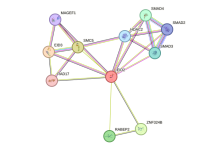What is a panic attack?
Panic attacks happen suddenly when people have a surge of intense, unpleasant feelings such as fear, terror, and doom. Symptoms of a panic attack can vary depending on the person’s age and gender. One patient may experience an intense heartbeat, chest pain, and difficulty breathing, while another might feel numbness or weakness.
A panic attack occurs when the fight-or-flight response becomes too strong. Extreme stressors, such as having to speak in front of a large audience or having a disagreement with a close friend, can frequently cause it to occur. Panic attacks can be extremely frightening and devastating. They can affect your body in harmful ways. They are a common occurrence but an illness that deserves attention and care.
A panic attack is a sudden feeling of intense anxiety and fear. It can often feel like you are losing control of yourself and everything around you. You may also see or hear things that don’t exist or believe things are happening that aren’t real. A panic attack often lasts between 10 minutes and 2 hours.
A panic attack affects people differently, but it’s important to know the physical symptoms so that you know what to expect if this happens to you: chest pain; feeling tense and heavy; heart palpitations; shortness of breath; dizziness or lightheadedness; numbness Panic attacks are a type of anxiety disorder that is often characterized by an intense feeling of terror, dread, or apprehension that triggers a flood of overwhelming psychological and physical symptoms.
When you have a panic attack, your heart beats quickly, and you might experience nausea or sweating. These physical reactions can actually help protect us from danger, but in some cases, they can trigger a panic attack when they happen unexpectedly. It’s important to recognize the difference between anxiety-related symptoms and physiological reactions that are indicative of a panic attack because the two work differently.
It is not always clear what makes someone susceptible to a panic attack. Some people with depression are more likely to experience them than others, while people who have experienced trauma may be more likely to be triggered by certain stimuli than others.

Stop Panicking with Meditation and Exercise
Meditation exercises are the ultimate way to stop panicking. They can help people in a variety of ways.
Meditation helps with anger, anxiety, and stress management. Interacting with nature also triggers meditation for some people, which has been shown to be more effective than city-oriented methods like walking in nature.
The practice also boosts creativity and emotional intelligence performance, which is another benefit for people who work in creative industries (though not limited to where it’s used).
Meditations are becoming popularly used throughout the workplace and can improve employee productivity, creativity, and emotional intelligence. Meditation helps employees at work by reducing stress and increasing mental concentration.
Stop Panicking mindfulness meditation
All the fuss about mindfulness meditation is ridiculous. In truth, it’s a great practice that can help people with anxiety, depression, and stress. Do you know what else can help people? The Stop Panicking mindfulness meditation app – a free tool to reduce your stress with guided meditations. Mindfulness meditation is fast becoming the new way to find peace in the hustle and bustle of everyday life. However, it’s not always an easy task; it takes practice and patience.
Mindfulness meditation is a form of exercise designed to help you become more aware of your feelings and thoughts, as well as their impact on your health. It has been found to help reduce stress levels, improve sleep quality, and promote positive mental health by changing your outlook on life. These are just some of the many benefits that mindfulness meditation can provide to people in their daily lives.
Stop Panic Attacks Safely Without Medication
Zig Zag Breathing Technique
When you breathe, your body needs to inhale oxygen and exhale carbon dioxide. While breathing in, you should take in all of the air that you can in your lungs and make sure that there is a steady rhythm moving up to your chest and then down into your belly. It’s also important to take deep breaths.
This zig-zag breathing technique is best for calming the mind and heart rate and reducing fatigue. When done properly, it can also improve cognitive performance, help with weight loss or fitness goals, or help relieve anxiety. Panic attacks can be really frightening, but with a little bit of practice, you can stop them in their tracks.
This technique is called “zig-zag breathing,” and it’s done by inhaling deeply through your nose while making your throat tight, then exhaling slowly through your mouth while making your throat loose. Repeat 10 times, and you’re good to go! You might not even realize that you are doing this until after you’ve stopped panicking.
Stop Panic Attacks Without Medication
A lot of people suffer from panic attacks, and there is no medication to stop a panic attack. Here are some effective ways to stop a panic attack without medication:
To stop a panic attack before it starts, try these tactics:
1) Breathe deeply and slowly.
2) Avoid triggering situations:
3) Remind yourself that you don’t have to deal with this right now.
4) Release your tension through exercise.
5) Take up a hobby
Positive Self-Talk to Stop Anxiety Fast
Positive self-talk is a great way to get rid of anxiety and other bad moods quickly. You just need to find the right one that fits your mood.
“I’m so smart! I can do this!”
“I’m so beautiful!”
“This is going to be fun!”
Anxiety is a mental disorder that can be debilitating to a person’s ability to perform at their best. It can also lead to social withdrawal and, sometimes, depression.
One way to combat anxiety is with positive self-talk or inner dialogue that creates a better outlook on the situation. What people might not realize is that it can actually help the body release calming hormones like oxytocin and serotonin.
It may be difficult for people who suffer from anxiety to overcome this mental disorder because of how strongly it has taken hold in their lives, but they should know that finding positive ways to talk about their condition is one way they can take back control over their lives.







